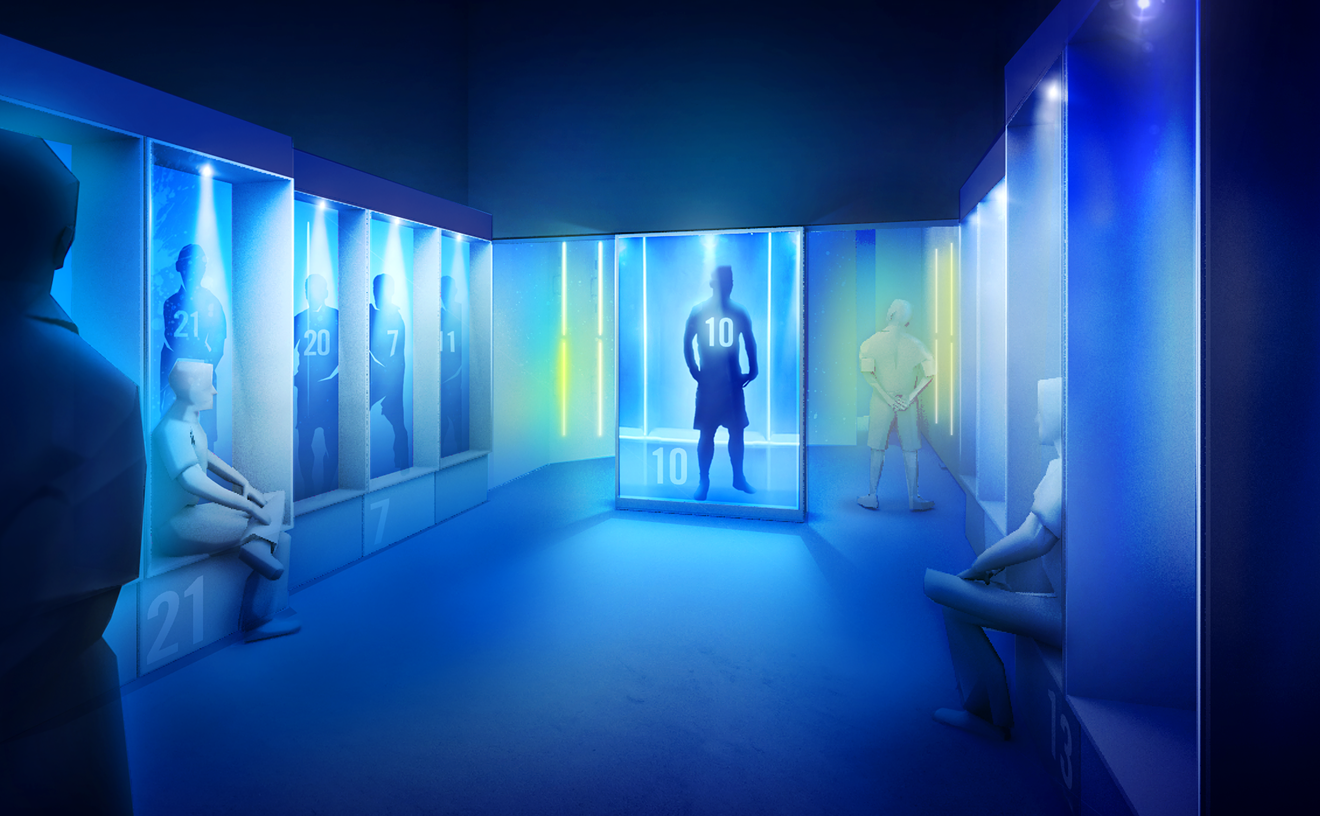Journalism is a tough gig these days. Publications are losing money, and many are scaling back or even closing altogether. Many of the best and brightest have bailed into fields like public relations, corporate communications, and videography. You can hardly blame them. Everybody's gotta eat.
For many, new media is an opportunity to utilize those hard-earned reporting skills in innovative ways. Enter Common Machine, the brainchild of Brett O'Bourke -- a former Miami Herald staffer and reformed journalist who now spends his days crafting videography for corporate clients and filming documentaries on topics from the Miami jai-alai to the influence of Hollywood on Cuban culture. This is what the future looks like.
See also: Cubamerican : Moving Documentary on the Cuban Experience in America, Debuts in Miami
O'Bourke got his first experience at the Herald's fledgling online department back in the late '90s. "I think that was the first time I got an email address. I was like, what use is this?" he quips.
Soon, he scored a full time feature-writing spot. He bounced around a bit in the field, to Street Weekly, Flavorpill, and 944 -- but quickly realized he wanted to move on. Journalism wasn't exactly the romanticized industry of yore.
"Even then it wasn't great and as we know the whole industry has crashed and burned in spectacular fashion since then," he explained.
"I didn't want to be in the print game anymore. I was probably 30. I was like, you better get to doing whatever it is you want to be doing." And with the help of some fellow creatives, Common Machine was born.
O'Bourke's team includes his best friend and executive producer Gaspar González, who boasts a PhD from Yale in American Studies and was managing editor at Street Weekly; Jorge Rubiera, cinematographer, editor, and Miami-based filmmaker; and Richard Patterson, former Street Weekly staff photographer and the team's first cinematographer. He left Miami to freelance in New York, but is still considered a part of the fam.
While it's a long list of business clients like the Four Seasons, GE-Hitachi, and Jackson Health Systems that pay the bills, the funding allows the team to pursue their own form of reporting -- the documentaries. O'Bourke speaks fervently about their projects. It's obvious each is a labor of love.
"This is my way of continuing to be a real journalist. The independent films -- that's our way of doing journalism and telling stories we feel are important and on a platform we feel like works for us and is viable."
Currently, they're working with two documentary development grants from the National Endowment for the Humanities, to produce two films, Errol Flynn's Ghost: Hollywood in Havana and A Long Way from Home: The Untold Story of Baseball's Desegregation. O'Bourke attributes the funding for both to the grant-writing skills and overall brilliance of partner González.
These two flicks will examine the impact of Hollywood films on Cuban culture in the early 20th century and the integration of Major League Baseball, respectively. They also have two self-funded flicks in post-production, one about Miami Jai-alai, titled Ballet With Bullets, and another about the International Whistling Competition, called The Whistler.
Their documentary on tiki culture (focusing around Fort Lauderdale's Mai Kai), Plastic Paradise, is about to hit the public airwaves a la WLRN and other PBS stations nationwide.
"It's this really interesting, fully formed subculture that has its own music, fashion, cuisine -- its own fully formed elements to it. But what's really interesting is that the reason it exists is as a result of the Internet ... the way subcultures find each other now and are enabled by connectivity," O'Bourke says.
While their reach certainly extends beyond South Florida, many of their concepts offer a probing look at local interests or historical context we might otherwise overlook. Jai-alai, for example. Arguably the world's best player spends half his season in Miami, O'Bourke says, and no one's even heard his name. It's Iñaki OSA Goikoetxea, aka Goiko, by the way. "By all accounts he's the LeBron James of jai-alai and nobody in the U.S. knows who he is. We'll use him to tell the story of Miami jai-alai."
The team also scored a regional Emmy in 2011 for their last documentary, Hecho a Mano: Creativity in Exile, plus a Golden Bulldog for their corporate work. Not bad for a small group of creatives.
The best part is, these seasoned media vets are still in the journalism game, but as a part of its emerging future, not the fading past.
"I think we're in the dark ages right now. The big problem is that the content and consumption have moved to the Internet but the money hasn't. I am hopeful that is going to work itself out over time," O'Bourke says.
What's next for Common Machine? The better question might be, what isn't? With multiple documentaries in the works, a flick about to hit the airwaves and more ideas than they know what to do with, they're on the cusp of creative fame. We can say we knew them when.
Plastic Paradise will premiere on WLRN on Wednesday, Sept. 18, at 8 p.m.
Follow Cultist on Facebook and Twitter @CultistMiami.










